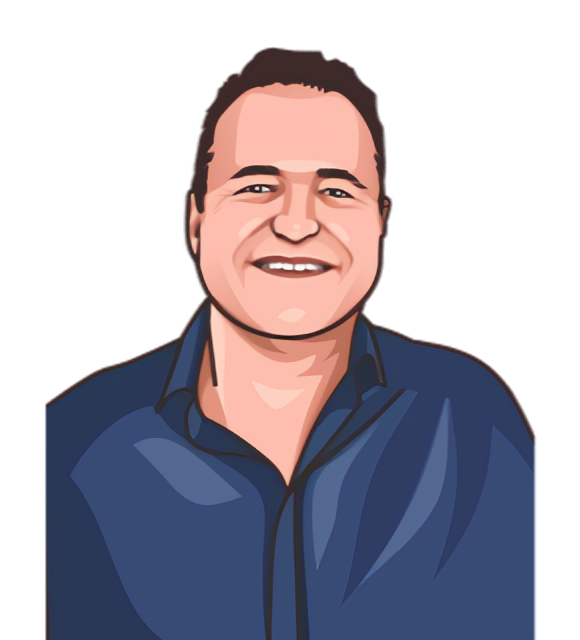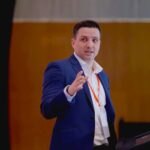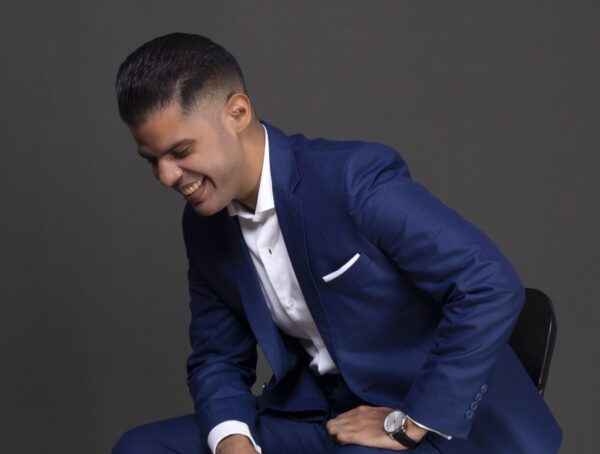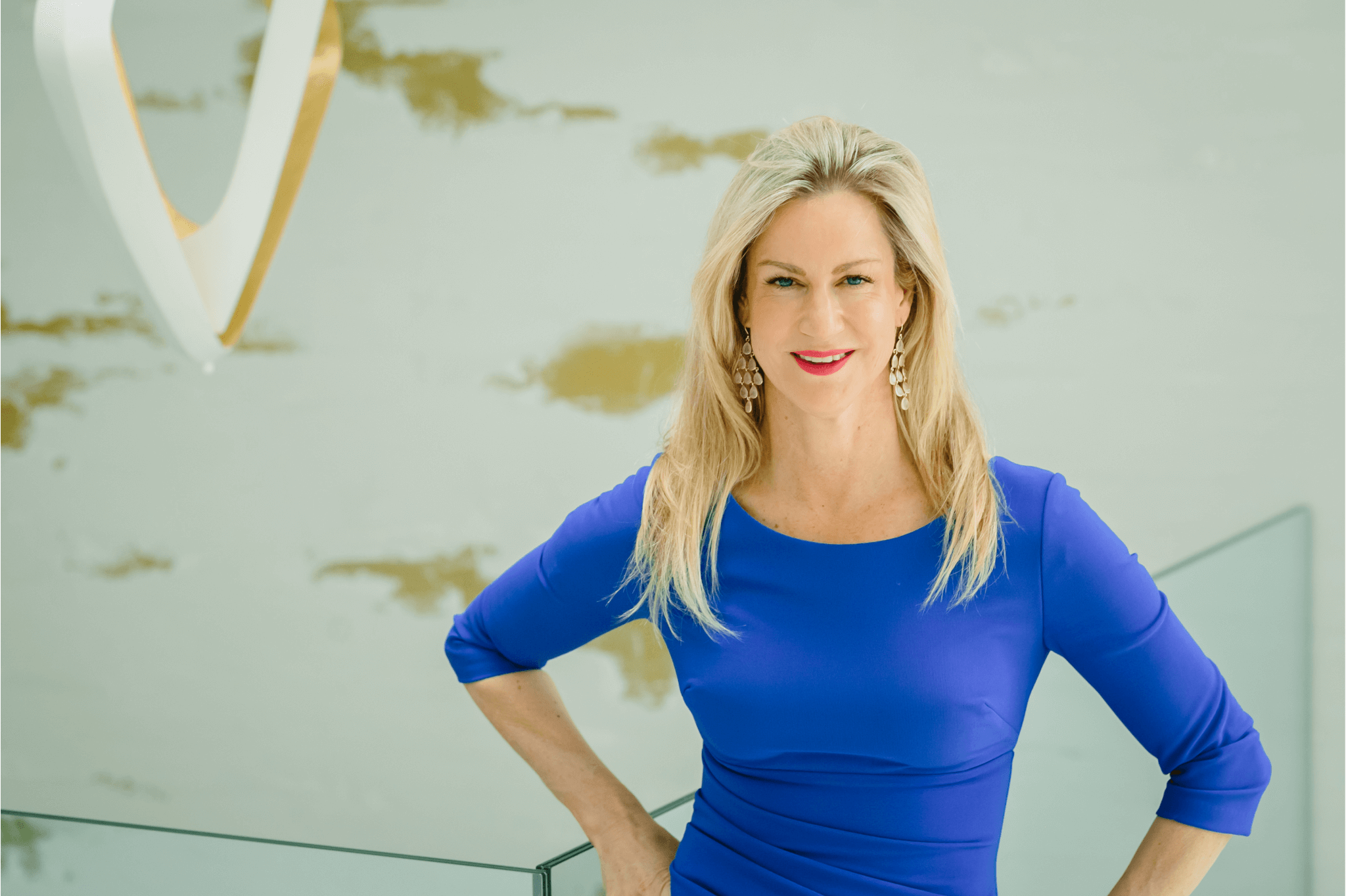Founder@ Interview
Interview with Nigel Cannings

“ Don’t expect people to come knocking at your door. You need to go to them and be able to present them with the solutions to their problems...” – Nigel Cannings
Today we feature Nigel Cannings, the founder at Intelligent Voice. We hear their story in their own words, their successes, their challenges and their insights.
Let’s start with learning a bit about you?
I’m Nigel Cannings, the founder and CTO of Intelligent Voice Ltd, a speech tech solutions company that works with government agencies, banks, securities firms, call-centres, litigation support providers, international consultancy, advisory businesses and insurers. I’ve got more than 25 years’ experience in both law and technology and I’m a regular speaker at tech industry events.
Great, really interested to learn about Intelligent Voice. Can you please tell us – how and why did you get into speech tech after law?
I started my working life as a lawyer in the early 1990s, but I’ve always had this keen interest in tech. My dad, who is now the chairman of Intelligent Voice, sold the first ever personal computers in Europe through his Byte Shop chain in the 1970s, and I’d always wanted to follow in his footsteps. When I was 18 in 1987, I walked into his office and told him I wanted to become a businessman, which was the 80s speak for ‘entrepreneur’.
For the first time in his life, he swore at me, promised me I had no idea how difficult that was, and to go and get a proper job. If I still wanted to run my own business after that, I should come back to him then.
Fast forward 17 years, I went to university, became a lawyer and ended up running the legal team in Europe for one of the world’s largest software companies. I’d made good money out of share options, so I left my job, walked back into his office, and said, “Right! I’m ready, Dad!” He stared at me, baffled.
He had no recollection of that seminal moment in my life—at the time, all he’d wanted was to get me out of his office!
What led me down the speech technology path was a passing comment I’d made to my dad when we were having lunch 14 years ago. I’d been working in natural language processing and tagging, and I’d written my Twitter tagging/trending tool.
I said to my dad that I wanted to exploit this technology for financial services and my dad replied that he’d been demonstrating speech tech to police officers in Boston in the 1980s, trying to convince them to use it for radio transcripts. That got me thinking – why didn’t we take all the stuff I’d been doing, my dad’s idea of speech tech, bundle them together and see what we got…
What does your Intelligent Voice do and where is your company based?
The company is headquartered in the UK, although we work with companies all around the world. We develop proactive compliance and eDiscovery technology solutions for voice, video and other media. Fundamental to our success is the patent-pending and patented technologies, Intelligent Voice® and JumpTo™.
We use speech recognition technology to capture calls, convert them into text and then automatically send the transcript (along with the original voice file) to the user’s inbox, as well as providing complex analytic capabilities.
You recently released version 5 of Intelligent Voice. Can you explain what has been the major development?
There’s been a shift in the way people deploy tech in the last few years – a move towards microservices and the idea of having little containers of functionality that are easy to swap in and out of.
Docker is a well-known technology that Google gets behind, and we’ve adopted that kind of architecture so that customers can use microservices, plugging little bits in and out. It doesn’t change the end user experience, but it makes it much easier for companies to deploy the software quickly and easily.
We vastly increased the accuracy of our speech recognition technology—jumping about 10 to 15 percentage points in accuracy across lots of different languages. We’ve also improved speaker diarization – partitioning audio according to speaker identity, which is incredibly difficult for computers to do, so we’ve put in a lot of work to improve that.
You are partnered with some major corporations. How does the relationship work when an innovative firm like Intelligent Voice partners with a large corporation?
It very much depends on the organisation. Some are innovative in themselves. We’re currently working with one major bank who have people in there who understand what we’re talking about and are willing to steer us through the procurement process and get us around the problems that you encounter with that sort of thing.
Then you get other organisations that are impossible to work with, throw up roadblocks everywhere and are internally bureaucratic, so you have the people working on your side who are nice and easy to deal with, then they say, “I’ll go and talk to procurement…” and your heart sinks. Most of the time when you’re a small company dealing with larger companies you must develop the same processes big companies have, such as ISO accreditations, data security compliance, etc., which is often very expensive.
The ‘good’ large companies are great, but other ones can be a nightmare.
So what’s been the story behind Intelligent Voice’s success? What led to your ‘A-ha!’ moment? How did you get to where you are now, who helped, who didn’t; what did you have to do to get there?
Some weeks ago one of our major partners had a case where its customers said the only reason that they found what they needed to find was because of the topics our software could put in front of them, quickly summarising the telephone calls they were reviewing.
Our partner said, “We just have to roll this stuff out everywhere. It’s the secret sauce; the thing that differentiates what you do from everyone else on the planet.” And that was my ‘A-ha’ moment where I got to say to myself, “Yes! This is what I’ve been saying along, and finally someone gets it and gets it at scale.” It was the moment I knew I’d cracked it after 12+ years of hard work and persistence.
Thank you for sharing that. We know that there are ups and downs in business. What’s been your biggest lesson so far with Intelligent Voice?
It’s important to have good people around you. My dad has been an enormous help, and my partner, Ben Shellie, too. The balance works really well. The biggest lesson? Don’t start your own business… That said, I’ve learnt so many things on my journey.
Treat other people with respect. Over the years, I’ve found that people I’ve dealt fairly with in the past did the same for me when we met again. Overall, if you can trust the people you work with, and they can trust you, then you’re onto a winner. And maintain your sense of humour if you can. It helps!
What advice would you give to your younger self?
Don’t do it! I’m joking. But it’s important to bear in mind running your own business will always cost far more and take far longer than you think. Budget accordingly.
Most businesses need tools, apps or services to run. What three tools help Intelligent Voice run better?
The tools we use are Myna (of course) our platform that creates searchable smart scripts, video and audio recordings of our most important zoom calls.
Slack for business communication, which certainly proved itself as indispensable during lockdown as well as Zoom!
This question is really interesting because if you’d asked me this a couple of years ago, I would have said, email, telephone and Expedia (to help me with business travel). The pace of change over the last few years has been jaw-dropping.
What do you know now that you wished you had known before starting Intelligent Voice?
If only I’d known how intensive it is to run your own business. I wish I’d learnt how to switch off sooner too. I’m okay with weekends now, but a proper holiday where you switch off completely still eludes me.
What has been your greatest or proudest achievement or moment?
The high point was winning the NVIDIA Emerging Companies award in 2016 for most innovative company. We had a very short pitch – about 3 minutes – to state our case and I’ve never rehearsed something so much before in my life. To be able to stand on a stage in Silicon Valley in front of a crowd and receive industry expert validation made me very proud. The $100k in prizes helped too!
What future life goals do you want to achieve for Intelligent Voice and yourself personally?
The business goal is easy to define. We’ve got lots of interesting ideas we’ve been developing over the last five years that we want to bring to market. One of them is augmented reality meeting room software.
I also want to change the whole conversation around how we do processing in the Cloud and get people to understand that. It’s a huge project, but something that would be incredibly useful for the company.
Personally, I reckon I have another five or six years of work left in me. I will definitely retire by the time I’m 60, so I want to get to the point where I can congratulate myself for a job well done, and then pursue the other things I enjoy doing.
If there was one piece of advice you would give to another founder or someone thinking about starting, what would it be and why?
Don’t expect people to come knocking at your door. You need to go to them and be able to present them with the solutions to their problems. You can build the best product or service in the world, but if people don’t know you exist it counts for nothing.
“Thank you it has been great learning more about your founder story and Intelligent Voice”
To learn more about Intelligent Voice Visit Intelligent Voice.
Inspired by this story? Please share this story and other founder stories.
For more inspiring founders stories check out Founder Stories.





![[Company Name]'s Founder Stories](/wp-content/uploads/2024/10/Fonuder@-Partners-01a-150x150.png)












